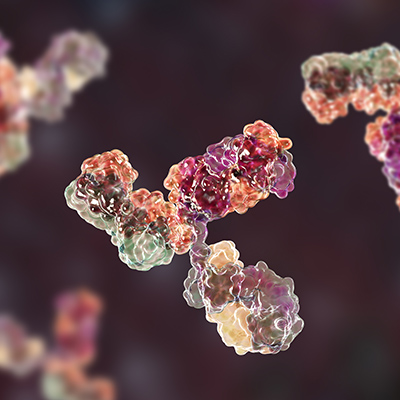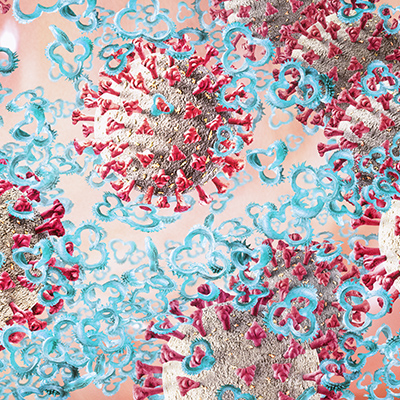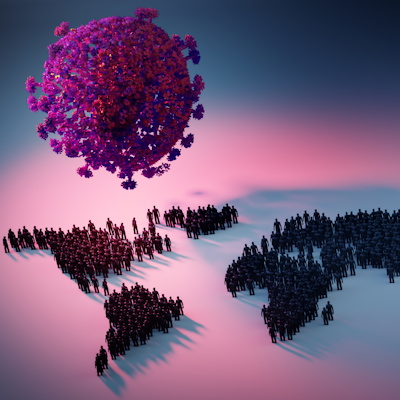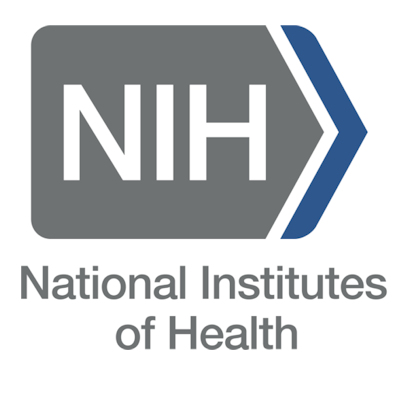October 9, 2020 -- Researchers have discovered that immunoglobulin G (IgG) antibodies to the SARS-CoV-2 virus are longer lasting in the blood and saliva of COVID-19 patients compared to the relatively short-lived IgM and IgA responses. The finding, presented in a pair of studies published in Science Immunology on October 8, suggests that IgG antibodies could be a promising target to detect and evaluate immune responses to the virus.
Understanding the duration and magnitude of antibody responses to the SARS-CoV-2 spike protein (full-length trimer) and its receptor-binding domain (RBD) is critical to monitoring seroprevalence among different communities and for developing COVID-19 therapeutics and vaccines. Past COVID-19 studies have demonstrated that more than 90% of patients have IgG antibodies to the SARS-CoV-2 spike protein, but the persistence of IgG remained a mystery.
The two new studies, both of which focused on antibodies specific to the SARS-CoV-2 spike protein's RBD, addressed this knowledge gap by documenting the persistence of the antibodies in hundreds of patients with COVID-19 up to three months after the appearance of symptoms.
RBD-targeted antibodies markers for SARS-CoV-2 infection
The first study (Sci Immunol, October 8, 2020, Vol. 5:52, eabe0367), carried out mainly by researchers in the Boston area, used enzyme-linked immunosorbent assay (ELISA) to measure the antibody responses of 343 COVID-19 patients up to 122 days after symptom onset. The measurements were then compared to prepandemic blood sample controls (n = 1,548).
The results showed that spike protein-specific IgM and IgA antibodies were short-lived, dropping beneath detection levels at around 49 and 71 days, respectively, after the appearance of symptoms. In contrast, the spike protein-targeted IgG responses decayed more slowly, with only three patients losing them within 90 days after the appearance of symptoms.
The Boston study also found no cross-reactivity of antibodies to SARS-CoV-2 RBD with widely circulating common cold coronaviruses, demonstrating the specificity of the assay.
"These data suggest that RBD-targeted antibodies are excellent markers of previous and recent infection, that differential isotype measurements can help distinguish between recent and older infections, and that IgG responses persist over the first few months after infection and are highly correlated with neutralizing antibodies," noted author Anita Iyer, PhD, of Massachusetts General Hospital and Harvard Medical School and colleagues.
Sustained IgG response in saliva and serum of COVID-19 patients
The second study (Sci Immunol, October 8, 2020, Vol. 5:52, eabe5511), carried out by researchers in Canada, examined the anti-SARS-CoV-2 antibody response in saliva as well as blood. Both serum samples (n = 439) and saliva samples (n = 128) of COVID-19 patients were monitored over a 115-day period and then compared to prepandemic controls (n = 339).
The researchers found spike protein-specific antibodies in both the serum and saliva of COVID-19 patients. Like the Boston study, the Canadian study found that while IgA and IgM antibodies targeting the spike protein's RCB rapidly decayed, IgG antibodies remained relatively stable for up to 105 days after the appearance of symptoms in 402 of the COVID-19 patients in both biofluids.
Furthermore, the antibody responses in the serum samples correlated positively with corresponding saliva samples, which suggests that saliva could be used as an acceptable alternative to blood as a biofluid for antibody testing.
"Our study provides evidence that the IgG response to SARS-CoV-2 spike persists in the saliva and the serum, and that this response can be correlated between the two biofluids, particularly for IgG," noted Baweleta Isho, a doctoral candidate in the department of immunology at the University of Toronto, and colleagues. "Given that the virus can also be measured in saliva by [polymerase chain reaction (PCR)], using saliva as a biofluid for both virus and antibody measurements may have some diagnostic value."
Do you have a unique perspective on your research related to immunology or virology? Contact the editor today to learn more.
Copyright © 2020 scienceboard.net










